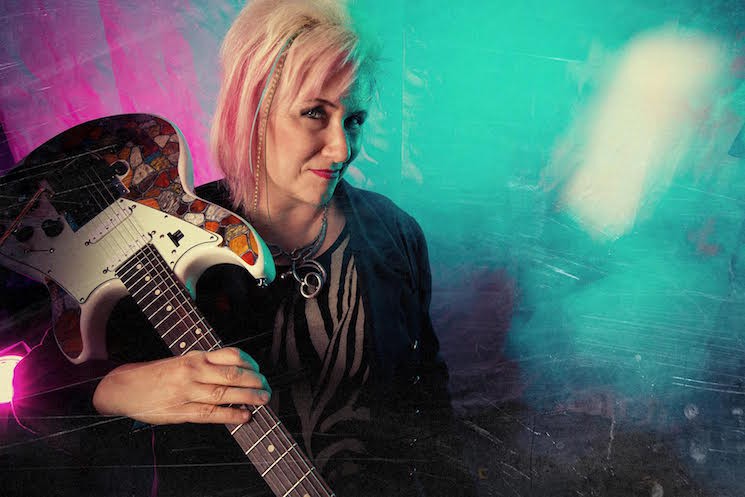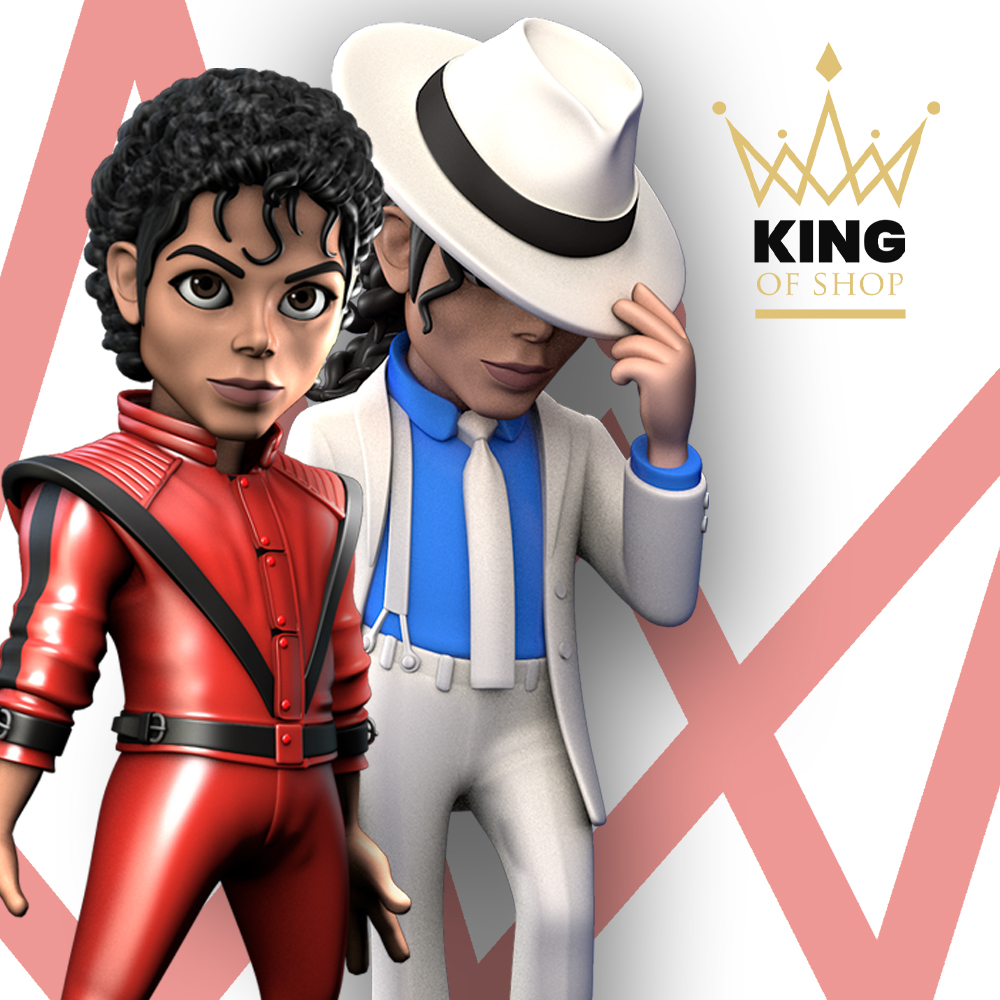
She is the hellraiser whirling around the King of Pop in the climax of Moonwalker — the cat-suited punk sporting a pointy guitar and an explosion of peroxide blonde. She prowls the stage with Michael Jackson in concert footage from 1987, wearing a three-foot mohawk and a light-up fiber-optic suit, topped only by the guitar solo she unfurls in “Beat It.” She is Jennifer Batten, a guitarist who spent a decade touring the planet with Jackson in support of albums like Bad and Dangerous. Twenty years after their last concert, Batten is still in awe of the energy he brought to the stage. “Every drum hit, Michael did something with his body,” she says. “Most people, if they did that for one song, they would have to take a nap.”
Batten’s affiliation with Jackson, and subsequent work with Jeff Beck, have made her into something like the first lady of shred guitar, an iconic female virtuoso in a world with surprisingly few of them. Despite a younger generation of formidable players like Carrie Brownstein, St. Vincent, Marnie Stern, Mary Halvorson, and Screaming Females’ Marissa Paternoster, the culture around electric guitars still bulges with an unbecoming bro-y-ness — a boys’ club attitude that Batten says is finally starting to change.
In 1978, she entered the Guitar Institute of Technology — now Musicians Institute — in Los Angeles. She had never performed live and never jammed much with other musicians. (“My mother,” she says, “didn’t want me to go play with strangers at night.”) Shortly Batten discovered something for which her limited experience had not prepared her. Of the entire student body, about 70 players, she was the lone female. “That’s when it really hit me that, ‘Hmm, maybe this isn’t such a normal choice,’” she says, chuckling. “It was a real shock. I don’t know that it even crossed my mind that it would be off-balance at all.”
In 1989, a guitar magazine that interviewed Batten revealed its subscribership as 98 percent male — a higher percentage than that of Playboy or Penthouse. The link between masculinity and electric guitar culture can seem, from one angle, obvious: An academic study by Steve Waksman called Instruments of Desire defines the instrument as a kind of gadget-dick hybrid: a “technophallus.” But anatomy, of course, is not destiny. Batten believes the divide around her instrument instead reflects the persistence of oppressive ideas about gender. “Even now, it’s not okay for women to be aggressive,” she says. “For many generations, if not thousands of years, women were [told to] make the babies and make the food and stay out of the limelight. In a lot of cultures, whether it’s recognized or subtle, women picked that up. And a lot of rock ’n’ roll is really aggressive.”
Batten was playing in five different bands when she got the call, in 1987, to audition for Jackson. She showed up to find no band, just a video camera. She played funky rhythms, followed by her solo arrangement of John Coltrane’s “Giant Steps,” a product of her years of jazz training. Then she tapped out the monstrous solo for “Beat It,” originally recorded by Eddie Van Halen.
A few days went by. Batten was asked to rehearse again, this time with a band. It seemed to go well, but still she heard no final verdict. After even more rehearsals, she was given a passport, a plane ticket to Tokyo, and a makeover that traded her brown hair and glasses for an electric mohawk and heavy makeup. After her arrival, as a gesture of goodwill, Jackson closed Tokyo Disneyland to the public and let his 100-person entourage enjoy themselves without crowds or nagging fans.
Batten was frolicking in the Disneyland gift shop with Sheryl Crow, then a background singer on the tour, when she felt a tap on her shoulder. She turned around to find the King of Pop standing there. “He said, ‘I like how you’re playing the “Beat It” solo,’” she remembers. “And I thought, ‘Wow, what a great surprise and a validation.’ That was when I knew I had the gig.”
Jennifer Batten performs Wednesday and Thursday, March 8 and 9, at Iridium as part of Her Story, Her Voice, a month-long series of concerts celebrating female musicians.
SOURCE: Village Voice



